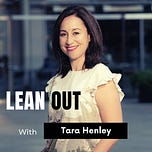In recent weeks on the Lean Out podcast, we’ve been doing a deep dive into the rise of independent journalism, and looking at some of the big stories that independent journalists broke this past year.
My guest on today’s program, taped in December, saw several of her own pieces draw international attention in 2022 — including her reporting on the trucker convoy crisis in Ottawa, and, as we’ll discuss today, her reporting around Canada’s controversial Medical Assistance in Dying program, also known as MAID.
Rupa Subramanya is a staff writer at The Free Press, and a columnist at the National Post. Rupa Subramanya returns to the show, today on Lean Out.
Transcript to come for paid subscribers.














Share this post